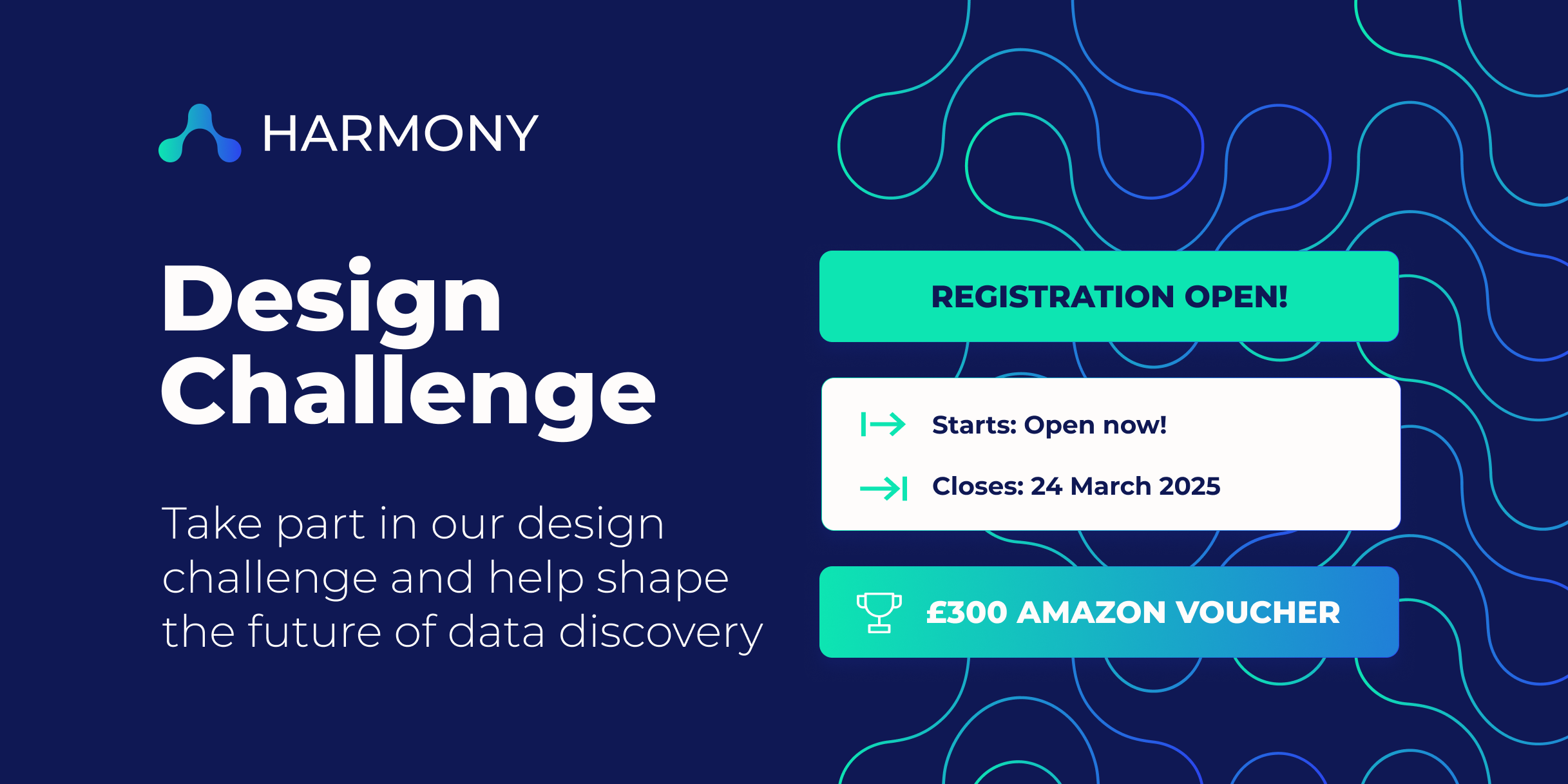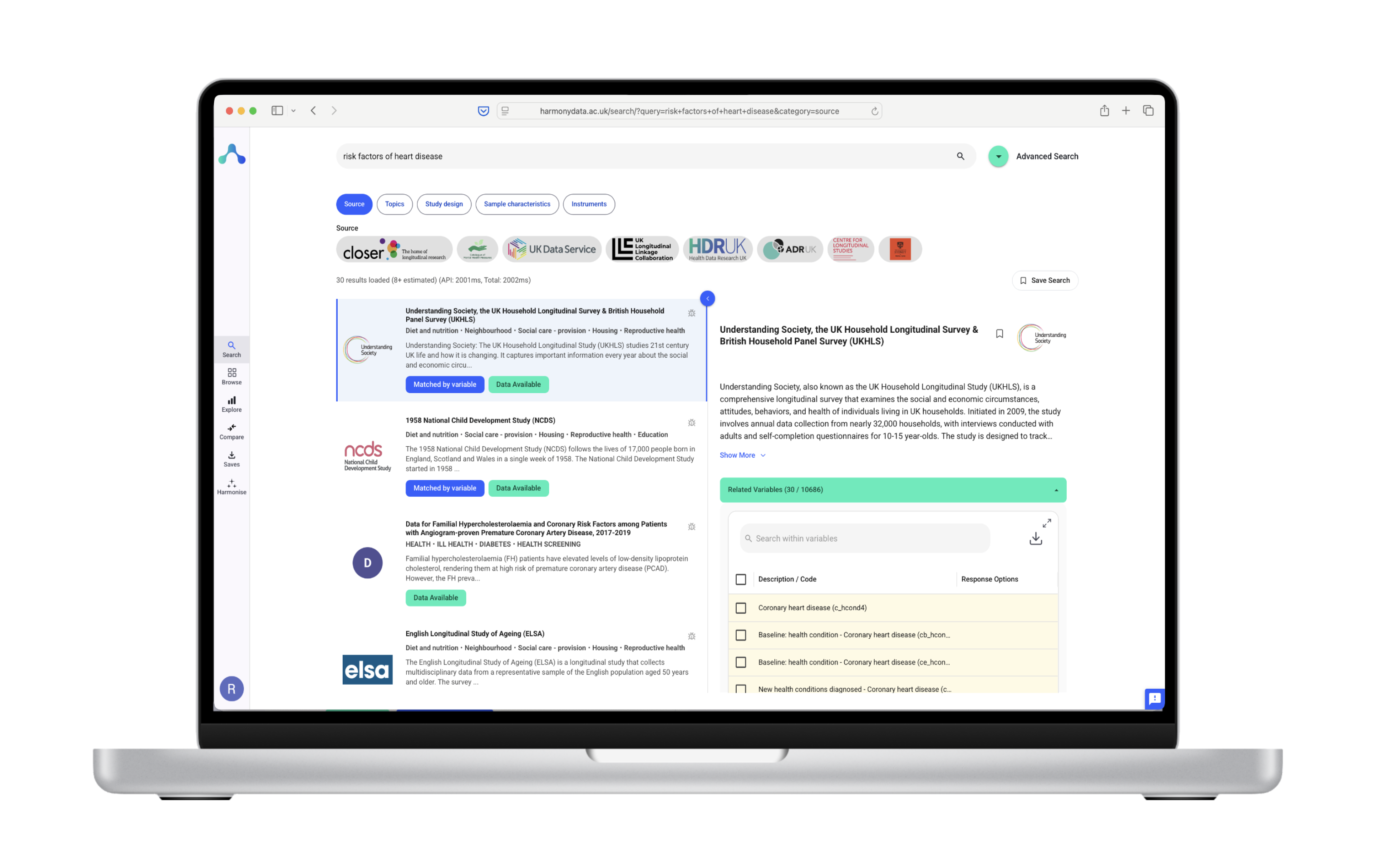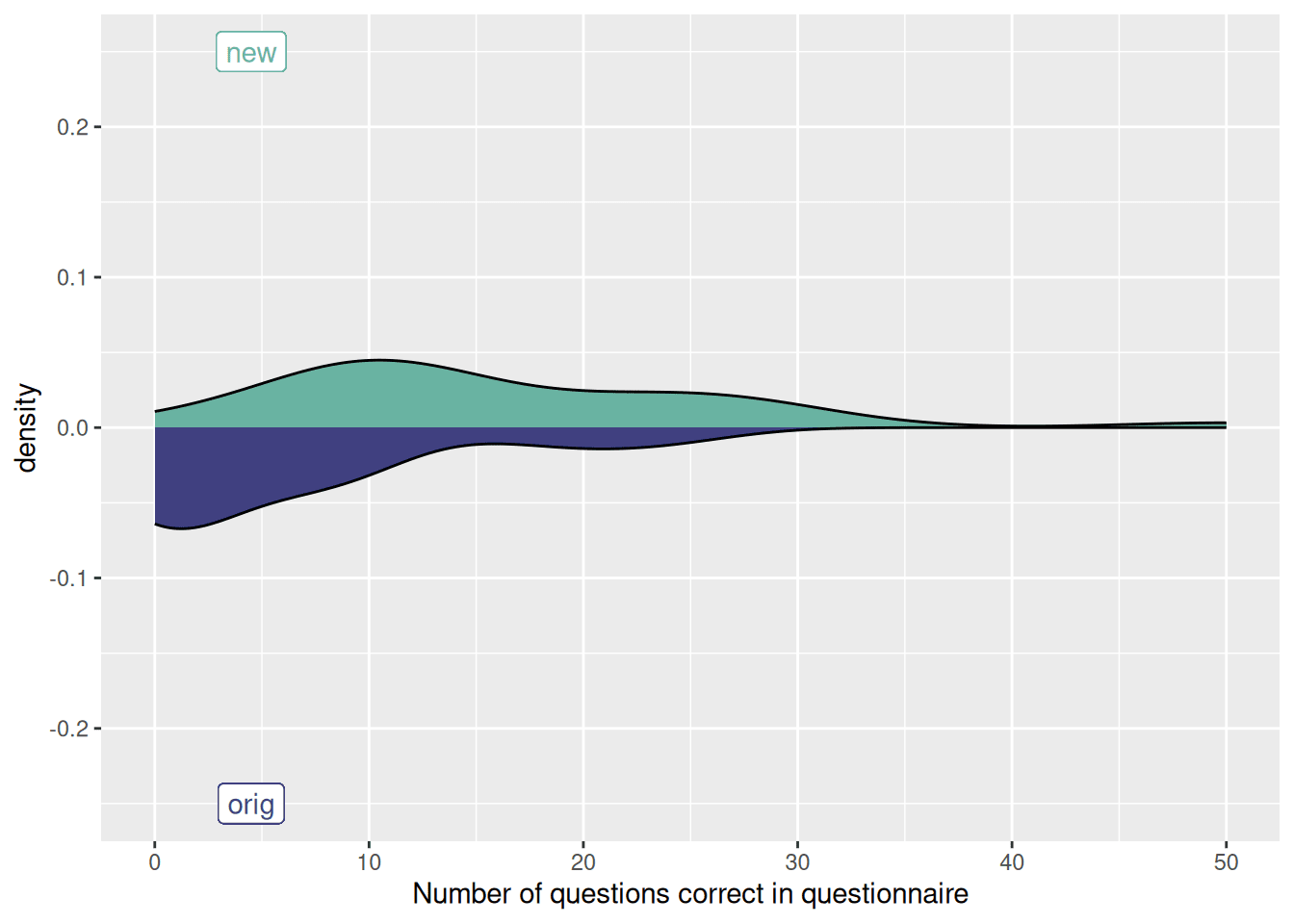
Search and Results UX/UI Challenge
Harmony is a platform for researchers to help them discover and compare complex meta-data across different academic studies. The project is a collaboration between University College London (UCL), The University of Ulster, and Fast Data Science and has been funded by the Economic and Social Research Council (ESRC) and by Wellcome as part of the Wellcome Data Prize in Mental Health. It is currently an open-source project with the aim of furthering and enabling better research of mental health.
Harmony is currently available as a beta version and functionality is limited to harmonisation of meta-data items that a user uploads. The next stage of the project is to deliver additional functionality to the platform and connect with other data discoverability platforms and partners to enable easier discovery of study meta-data.
This design challenge is to design a new discovery page (or pages) that enables users to meaningfully search for meta-data and represent results in a way that is easy to understand.
Users need the ability to search and view meta-data from studies held on connected data platforms. The search function should be flexible enough to accommodate specific search requests across a wide range of subjects and also allow a user to filter or organise results in a meaningful way.
To sign up for this challenge, please register using the link below and sign up to our Discord Channel.
Study meta-data is not necessarily consistent across studies Labels and categories can use similar but different terms Filters or sorting criteria can change based on results (we aim to use AI LLM’s to determine things like filters based on results) Should support high level meta-data ‘browsing’ as well as specific searching
Core users of this tool will be Researchers, mainly working in mental health related fields but could also be Data Managers or anyone working with mental health meta-data. More detail around user, user requirements and user behaviour will be shared on our Discord discussion channels during the competition.
Submissions should be made via email to harmonydataproject@gmail.com no later than 24th March 2025. Submissions do not necessarily need to be polished designs or working prototypes, however partcipants are encouraged to submit a file with clear ideas or wireframes that can be easily visualised by the judging team.
In your submission, you should include:
Submissions will be judged based on the following criteria:
Winning submissions may then be chosen to be further developed by the Harmony Team. Participants may be asked if they want to be involved in that process. All Participants will be able to use their work in their portfolios and the Harmony team can provide endorsements for winning participants for use in their portfolios and CV’s. Any work submitted by participants may be used or further developed by the Harmony Team.
All participants will receive a certificate of participation or, if successful, a winners certificate.
GOOD LUCK!

